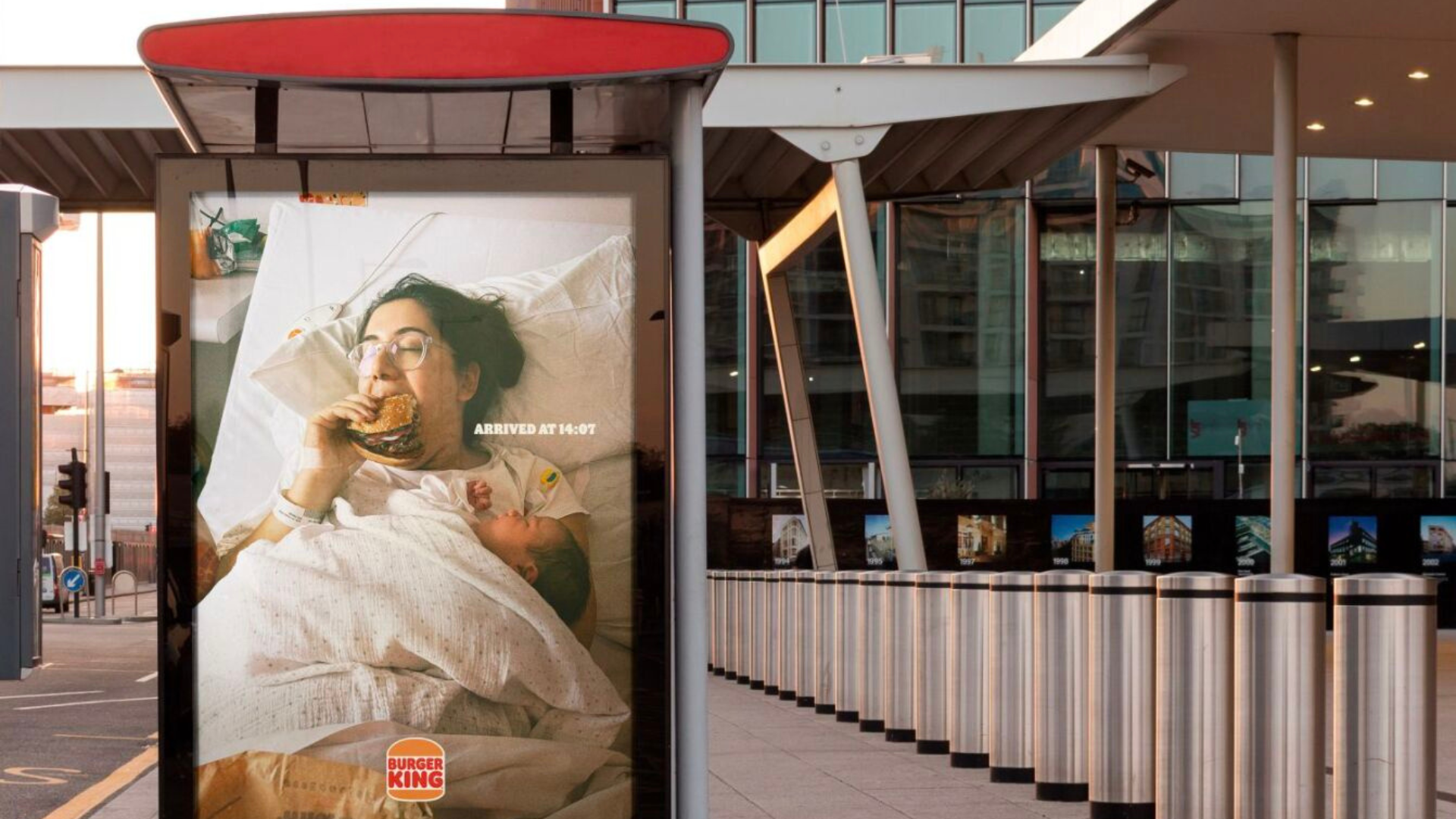
Nothing quite compares to the release and relief of bringing a baby into the world. After nearly a year of waiting and worrying, the little one is finally here — a living, breathing, new bundle of joy. Once the adrenaline wears off and the euphoria levels out, you might realize you’re hungrier than you’ve ever been in your life. After the marathon your body just completed, it makes perfect sense.
Anyone who’s ever been pregnant knows that it’s about nine months of sacrifice as you avoid foods that could be a threat to you and your growing bundle. Once the baby is present and accounted for, you get to eat whatever you like. Fast food giant Burger King thought it would get in on that idea with a new ad, but it’s not going over how the company expected.
More from CafeMom: My Baby Was Born so Big I Burst Every Blood Vessel in My Face Giving Birth
The ad features real moms eating a Whopper for their first meal postpartum.
For several moms in the UK, that first meal was a Whopper from Burger King. The fast food giant capitalized on these moments, according to the site Indy 100. Burger King used real photos of new moms still in their hospital beds with a newborn in one hand and a Whopper in the other.
The campaign, titled “Bundles of Joy,” featured the time of the arrival over the images — obviously a play on the arrival of the baby and the burger.
More from CafeMom: 10 Ways for a Husband To Not Be a Worthless Turd of a Spouse When His Wife Has a Baby
An ad strategist had a problem with the campaign.
The campaign launched on September 26, reportedly the day that most babies are born in the UK. Just a day after the drop, the ad was met with some pretty strong criticism.
Will Poskett, a strategist, used his LinkedIn profile to say the advertisement goes too far in search of fame. He took it a step further claiming that the campaign “promotes cancer and obesity-causing ultra-processed foods (UPF) next to the birth of a newborn baby.”
Although Will acknowledged that the insight — presumably of women craving Whoppers — might be “true,” promoting ultra-processed foods like this is “cynical and disgusting.” He ended the post with a challenge to advertisers to do better.
'This debate feels insanely sanctimonious to me,' one woman wrote in response to Will's critique.
His criticism was met with plenty of people who pushed back in the comments, defending women’s right to eat whatever they want after labor.
“I’m not sure, unless you go through the journey of pregnancy you can really critique how good or bad the ‘truth’ is or how much this moment is deserved to the parent,” another strategist, Jon H, wrote in response. “You’re judging one moment of freedom after this 9 months journey and reading way too much into this one moment.”
“This debate feels insanely sanctimonious to me,” a female marking and content strategist shared. “The ads are just not that deep… The moment of having whatever you want when you’ve been through the unimaginable process of giving birth is the deep thing…Moralistic self righteousness is the grossest thing here!”
Some people understood and agreed with Will’s point about processed food but still argued for a mother’s choice. “I’m with you on UPF in my day to day life but I think after going through something as huge as birthing a human – a f— it I’m treating myself attitude just happens.”
Will created a second post to apologize and better explain.
After all of the backlash, Will offered more nuance to his argument in a second LinkedIn post, and something like an apology. “The world doesn’t need another guy mansplaining what women can and cannot do,” he wrote. “That was not my intention yesterday.”
Then he offered an example of an ad he liked better. It was a Grubhub spot featuring women of various backgrounds eating all types of things, including burgers, for their first postpartum meal. “Unlike the BK ad it doesn’t cynically enforce a burger as the only option,” Will wrote.
He said Grubhub took meaningful action by offering free delivery to women who give birth on a specific day. This argument was a bit different than the initial one about promoting cancer- and obesity-causing foods. But we appreciate the apology. The last thing the world needs is another mansplainer.




